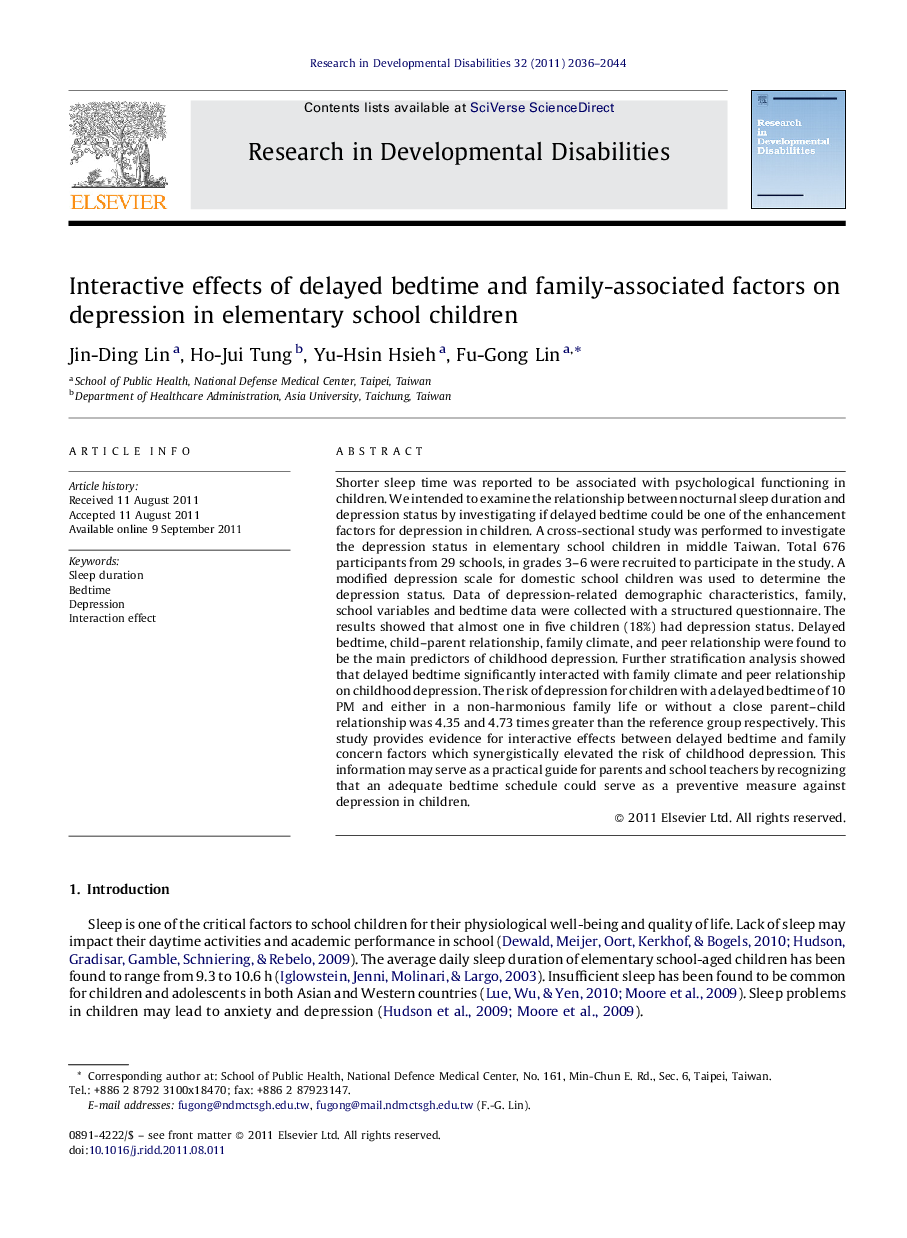| Article ID | Journal | Published Year | Pages | File Type |
|---|---|---|---|---|
| 371779 | Research in Developmental Disabilities | 2011 | 9 Pages |
Shorter sleep time was reported to be associated with psychological functioning in children. We intended to examine the relationship between nocturnal sleep duration and depression status by investigating if delayed bedtime could be one of the enhancement factors for depression in children. A cross-sectional study was performed to investigate the depression status in elementary school children in middle Taiwan. Total 676 participants from 29 schools, in grades 3–6 were recruited to participate in the study. A modified depression scale for domestic school children was used to determine the depression status. Data of depression-related demographic characteristics, family, school variables and bedtime data were collected with a structured questionnaire. The results showed that almost one in five children (18%) had depression status. Delayed bedtime, child–parent relationship, family climate, and peer relationship were found to be the main predictors of childhood depression. Further stratification analysis showed that delayed bedtime significantly interacted with family climate and peer relationship on childhood depression. The risk of depression for children with a delayed bedtime of 10 PM and either in a non-harmonious family life or without a close parent–child relationship was 4.35 and 4.73 times greater than the reference group respectively. This study provides evidence for interactive effects between delayed bedtime and family concern factors which synergistically elevated the risk of childhood depression. This information may serve as a practical guide for parents and school teachers by recognizing that an adequate bedtime schedule could serve as a preventive measure against depression in children.
► Delayed bedtime after 10 PM was found to be one risk factor for childhood depression. ► Results revealed family climate, child–parent and peer relationship were important factors for childhood depression. ► Synergistic effects of delayed bedtime and non-harmonious family climate were found to increase 4.3-fold on childhood depression. ► Synergistic effects of delayed bedtime and not-close child–parent relationship were found to increase 4.7-fold on childhood depression. ► Concern on the child having regular bedtime and sufficient sleep duration is suggested for depression prevention strategy.
